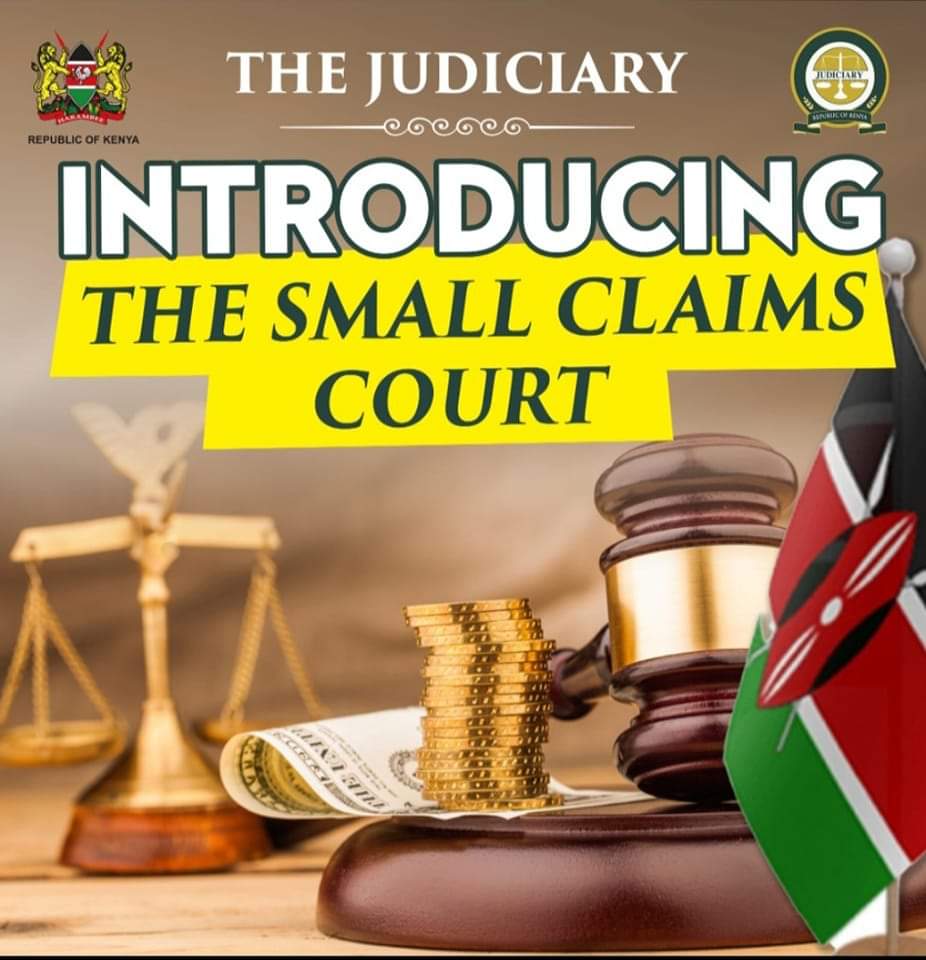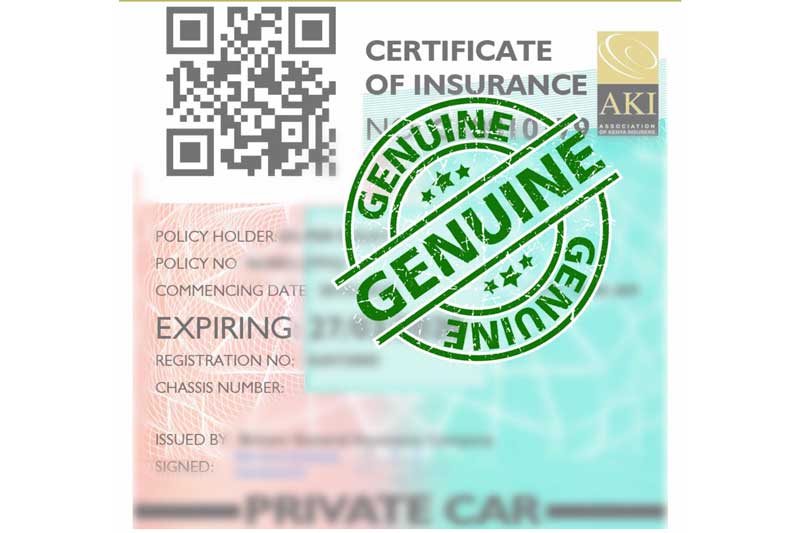8.00 - 9.00
Opening Hour Mon - Fri

Instead of creating an entire legal department within your company or business, why not simply outsource that work to an external law firm?
Having an in-house counsel means that the lawyers are paid as employees of the company, they are on a payroll. Assume you have one lawyer, one secretary, and one intern, their total monthly salary is around Kshs. 300,000/=. Having two or three of them is even much expensive.
Hiring an external law firm allows you to negotiate and pay as little as Kshs. 100,000/= per month.
In-house and External Law Firms
In-house and external firms, literally do the same thing, they handle regulatory issues, drafting and reviewing contracts such as employee contracts, contracts with suppliers, contracts with customers, dealing with new employment standards and give the company advice on how to maintain compliance in various areas where the law is constantly changing, such as environmental, OSHA, sexual harassment, and discrimination.
We understand that budgets are tight for small and medium business owners, and having a lawyer on retainer to handle day-to-day legal issues that may arise can seem impossible. Large corporations can afford to hire an in-house lawyer and establish an entire in-house legal department with many lawyers. This is not an option for a small-business owner. However, you may be surprised to learn that there is a cost-effective way for a small business to obtain consistent, high-quality legal services to meet their day-to-day legal needs, and that is outsourcing for an external law firm. Some law firms here in Nairobi such as W.J. Maxwell & Associates Advocates, provide general counsel services at reasonable rates, and in some cases on a fixed-fee basis.
Which Option is the Best for your Business?
Your best option depends on your business’s needs. If your business needs counsel with multiple areas of expertise such as micro-finance lending institutions, real estate developers, healthcare sector, tech companies, non-profit organizations, outside counsel is likely your best option. Also, if you run a startup or small business and don’t have complex business dealings requiring legal expertise, an outside law firm may be a good option.
In-house counsel can be a great asset because they can deal with any legal matter a business deals with. They are responsible for all the compliance and legal aspects of a business, however, not all companies have the resources to hire in-house counsel.
Benefits of Hiring a Law Firm Outside of Your Company Over an In-house Department
Hiring an external law firm instead of having an in-house counsel for a company in Kenya can offer several advantages. Here are some key benefits:
External law firms often have a team of lawyers with specialized knowledge in various areas of law. By engaging a law firm, you gain access to a broader range of legal expertise that may be necessary for different aspects of your business. This can be especially beneficial if your legal needs are diverse and require specialized knowledge in areas such as corporate law, employment law, conveyancing, intellectual property, or taxation.
As mentioned earlier, hiring an external law firm on a project or case basis can be cost-effective compared to having a full-time in-house counsel on a monthly payroll. With an external law firm, you only pay for the services provided, and you can negotiate fees based on specific projects or tasks. This can be more budget-friendly, especially for smaller companies or those with fluctuating legal needs.
Engaging an external law firm allows you to scale your legal services up or down based on your business needs. If you require legal assistance for a specific project, you can engage the law firm for that period and discontinue their services afterward. This flexibility is particularly valuable if your legal needs vary throughout the year or if you have intermittent requirements.
Law firms often have extensive networks within the legal community, both locally and internationally. This network can provide valuable resources and connections, such as access to subject matter experts, industry-specific insights such as insider information and pointing you to the right direction with investors and general expansion to your business. Leveraging a law firm's network can contribute to more comprehensive legal support and success for your company.
An external law firm can offer an objective perspective on legal matters and provide independent advice. As external advisors, they can assess your legal issues from an outsider's viewpoint, without being influenced by internal dynamics or conflicts of interest. This objectivity can contribute to more impartial legal guidance and help mitigate potential risks.
Law firms prioritize staying up to date with the latest legal developments, regulations, and precedents. By engaging a reputable law firm, you benefit from their continuous legal education and awareness of recent legal changes. This ensures that your business is well-informed and compliant with applicable laws and regulations.
In-house cannot represent you in court during litigation. To represent a company in court during litigation in Kenya, it is necessary to engage the services of an external advocate who is duly licensed and registered with the LSK.
The restriction on in-house counsel representing their company in court is primarily based on the principle of independence and impartiality. Advocates are expected to act as officers of the court and owe a duty to the court, in addition to their duty to their clients. By not allowing in-house counsel to represent their company, the legal system aims to ensure the integrity of court proceedings and maintain an unbiased environment.
Furthermore, the restriction helps avoid conflicts of interest that may arise when in-house counsel simultaneously act as both legal advisors and advocates representing their employer in court. It safeguards the interests of the client and ensures that the litigation process remains fair and impartial.
Conclusion
It's important to note that the decision to hire an external law firm or an in-house counsel depends on your company's specific needs, budget, and long-term legal requirements. It may also be possible to strike a balance by having a combination of in-house counsel and external law firm support, depending on the complexity and volume of your legal matters.
W A N T M O R E I N F O R M A T I O N O N E X T E R N A L L A W F I R M T O
P A R T N E R W I T H Y O U R B U S I N E S S ?
T H E A D V O C A T E S A T W . J . M A X W E L L & A S S O C I A T E S A R E H A P P Y T O H E L P .
C O N T A C T U S F O R M O R E I N F O R M A T I O N .
W . J . M A X W E L L & A S S O C I A T E S A D V O C A T E S
info@wjmaxwell.co.ke | www.wjmaxwell.co.ke || 0733 61 09 61

It is crucial to comprehend the laws governing private employment agencies in light of the recent cases of Kenyans being conned into paying hundreds of thousands of shillings for jobs in Canada, the United States, the United Kingdom, Australia, Dubai, and Qatar.
REGISTRATION OF PRIVATE EMPLOYMENT AGENCIES
An Agency may be registered by the Director of Employment to carry out business of a private employment if-
These strict laws were enacted following complaints from the public that fake agencies had enticed Kenyans with the promise of well-paying job but instead had either defrauded them of their money or placed them in subpar positions, particularly in the Gulf Countries.
As the Government works to purge the market of fraudulent hiring agencies, only Recruitment Agencies run by business graduates and with at least 5 million shillings in share capital are permitted to hire and place Kenyans in positions abroad, including Canada, the United States, the United Kingdom, Australia, Dubai, and Qatar.

The Basics
Small claims court is only for simple cases to recover money or property
worth less than 1 Million Shillings. If you seek more than Kshs. 1 Million or require the judge
to rule on matters of law, the claim is no longer “simple” and you should
consult an advocate. If the amount you seek is more than Kshs. 1 Million, to use
small claims court, you must agree to waive and forfeit the recovery of all sums in excess of Kshs. 1 Million.
How Do I File A Claim
You can file your claim by going to the small claim court where you live or where the person being sued resides.
You should have with you the required filing fee and the name and
address of the person or people you are suing. You should also know the
exact amount you want to recover and be prepared to give a written
explanation of your case. You may then fill out the Statement of Claim
and file it online. You will also file the documentary evidence you wish to rely upon your case.
NOTE: You require an Advocates assisstance to prepare, fill out and file your claim.
Information Needed to File
To file a case, you must pay the filing fee and fill out a form (called
a Statement of Claim) showing your name and address, the name and address
of the person being sued, the amount of money or property you are
asking for, and why you are asking for it. You must provide
information to locate the people being sued so they can be legally
served an official summons (or notice to appear) in court. It is your
responsibility to furnish the address to the Defendant when you
file the case.
Who can be Sued in Small Claims Court?
You may sue any person, business or company operating in your county or court's jurisdiction that you believe owes you money or property. Yourself or that person, business or company must reside in the county where the case is filed.
After The Claim is Filed
Once you have filed your claim, you will be notified of a Mention date.
Then, a summons, along with a copy of your Statement of Claim, will be served by the
Court's Process Server on the person being sued.
If the defendant in your case cannot be located, you should contat the
court for a continuance to give you more time to find a good address for
the defendant. It is your responsibility to contact the clerk before each
court date with a new address or whatever information you may have so
that the person or people can be found. If you settle the case in an out-of-court settlement before the hearing date, notify the court at once so the case can be dismissed.
Your Day In Court
The Small claims court proceedings are conducted 'informally' by the judge (adjudicator).
You should be prepared when you arrive for your hearing to clearly explain
your side of the case. Be respectful and courteous to everyone involved in
the case, even if other people are not courteous. Bring whatever
evidence, papers, documents, or other materials you believe you need to
prove or support your case.
Both sides will be given time to explain their positions, or question and cross examine witnesses.
The judge will make a decision after all the evidence is offered.
Counterclaims
If the defendant filed a counterclaim against a plaintiff to offset what the
plaintiff says is owed, the counterclaim may be heard at the same time.
Depending on the circumstances, the judge may either make a decision
immediately after hearing both sides or may continue the case on another
date.
Default Judgment
If either party was properly served and does not show up for the hearing,
the judge may declare the absent party in default and award judgment to
the other party as if the case was heard or determined. The law gives the Defendants sufficient time or a chance to file their papers because looking at the rules, a Defendant has a total of 28 days to file an appearance and defence.14 days to file appearance & 14 days to file a defence.
No Lawyer
In most instances, you can (and should) hire a lawyer to represent you in the Small Claims
Court. You can choose not to be represented by a lawyer, but it is important to ask a lawyer for legal advice on the strengths and weaknesses of your claim.
Legal Terms You Should Know
Plaintiff/Claimant—A person who initiates a legal action; the party who complains
or sues.
Defendant/Respondent—a person being sued.
Counterclaim—a legal claim presented by a defendant in opposition to
the claim of a plaintiff. Counterclaims avoid duplicate lawsuits over claims
by each party against the other. Everything is handled in a single lawsuit
using a claim and a counterclaim.
Summons—an order directing a Process Server or other officer to notify named
people that a legal action has been commenced against them and that
they are required to appear within a certain time to answer the complaint
Judgment—the official decision of a court determining the rights of the
parties involved.
Appeal—a legal proceeding by which a party seeks a higher court review
of the action taken by a lower court.
Subpoena—a court order to a witness ordering him/her to appear and
testify at a certain time and place.
Service of process—the presentation of a summons to the defendant in a
legal action.
Judgment Creditor—the party who wins a collection suit and to whom
money is owed.
Judgment Debtor—the party who loses a collection lawsuit and owes the
money.
[*This article generally explains the law in force in Kenya and does not constitute an opinion or a legal opinion. To find out the rules specific to your situation, write to us on info@wjmaxwelll.co.ke or call/WhatsApp on 0733 610 961]

Are you a budding entrepreneur looking to take over a shop in Kenya? Picture this: You step into a ready-made business, armed with a secret weapon called goodwill. This intangible asset holds the power to propel your venture to new heights, captivating customers and outshining competitors. Brace yourself for the game-changing benefits that goodwill brings when renting a shop in Kenya.
Seize the Loyal Legion: The allure of goodwill lies in its ability to transfer the existing customer base into your eager hands. Imagine the instant revenue stream flowing in as you inherit a tribe of loyal patrons from the previous business. Prepare to reap the rewards of their loyalty while effortlessly attracting new customers to your doorstep.
Ride the Wave of Recognition: Building a brand from scratch is an arduous journey. However, with goodwill on your side, you'll catapult ahead in the race. Bask in the glow of a pre-established brand image and enjoy the fruits of its recognition. Say goodbye to countless hours spent building awareness and embrace the head start that goodwill offers.
Leave Competitors in the Dust: Picture yourself as the trusted frontrunner in the market. Goodwill is your secret weapon, positioning you miles ahead of new entrants. Stand tall as an established entity, as customers flock to your shop, drawn by the reputation you've inherited. Watch your rivals fade into the background as you secure a competitive edge.
Unleash the Marketing Magic: In a world where marketing costs can drain your resources, goodwill comes to the rescue. Prepare to save a fortune on advertising and promotional efforts, thanks to the positive reputation of the previous business. Capitalize on the free publicity that goodwill effortlessly generates and witness your customer base grow without emptying your wallet.
Financing Made Effortless: Conquering financial hurdles becomes a breeze with goodwill by your side. Lenders and investors view businesses with established goodwill as less risky ventures. This perception elevates your chances of securing financing for expansion and operational needs. Say hello to a smoother journey towards growth and prosperity.
The Wisdom Transfer: As you step into the shoes of the previous business owner, brace yourself for a treasure trove of knowledge. Benefit from their experience and gain invaluable insights into the local market, trusted suppliers, and operational intricacies. This seamless transition, aided by goodwill, ensures you hit the ground running and avoid unnecessary stumbles.
Be prepared for the rental price dance, as goodwill may hold sway over negotiations. This prized asset is often discussed separately from the physical property, with its value etched into the rental agreement or lease terms.
In the bustling world of Kenyan entrepreneurship, goodwill emerges as a vital force, allowing you to harness the existing business's reputation, customer base, and intangible assets. Unlock the door to success, save time, and resources, and witness your dreams flourish beyond your wildest imagination. The key lies in embracing the power of goodwill when renting a shop in Kenya.
[*This article generally explains the law in force in Kenya and does not constitute an opinion or a legal opinion. To find out the rules specific to your situation, write to us on info@wjmaxwelll.co.ke or call/WhatsApp on 0733 610 961]

If you want to sue a rogue recruiting agency in Kenya in the small claims court, here are some general steps you can follow:
Gather evidence: Collect all relevant documents, emails, agreements, and any other evidence that supports your case. This may include communication records, contracts, payment receipts, or any other documentation related to your interaction with the recruiting agency.
Understand small claims court jurisdiction: Familiarize yourself with the jurisdictional limits of the small claims court in Kenya. Each jurisdiction may have specific monetary limits on the amount you can claim in small claims court. Ensure your claim falls within the court's jurisdiction.
Research the legal requirements: Study the laws and regulations related to recruitment agencies in Kenya. Determine if the agency has violated any specific laws or breached their contractual obligations. Understanding the legal framework will help you build a stronger case.
Attempt to resolve the issue outside of court: Before resorting to legal action, consider attempting to resolve the matter amicably. Communicate with the recruiting agency and express your concerns. Sometimes, a settlement or resolution can be reached through negotiation or alternative dispute resolution methods.
File a claim: If the issue cannot be resolved outside of court, visit the small claims court in the jurisdiction where the recruiting agency is located. Obtain the necessary forms to file a claim. Provide accurate and detailed information about your case, including the specific damages you are seeking.
Pay the filing fee: There may be a filing fee associated with initiating a small claims court case. Ensure you pay the required fee to proceed with your claim. If you are unable to afford the fee, inquire about any fee waiver options available to you.
Serve notice to the defendant: Once your claim is filed, you need to serve notice to the recruiting agency about the legal action. This usually involves providing a copy of the claim and the court hearing date. Follow the proper procedures for serving notice, which may vary depending on the court rules.
Prepare for the court hearing: Organize your evidence, create a clear and concise summary of your case, and prepare any witnesses who can support your claims. Make sure you understand the facts of your case thoroughly to present your arguments effectively in court.
Attend the court hearing: On the scheduled date, attend the court hearing and present your case. Be respectful, concise, and provide evidence to support your claims. Listen carefully to the opposing party's arguments and respond appropriately.
Await judgment: After both parties present their arguments, the court will make a decision. If the court rules in your favor, you may be awarded the requested damages or a suitable resolution. If the judgment is not in your favor, you can explore further legal options, such as appealing the decision.
It's important to note that this is a general guideline, and the specific procedures and requirements may vary depending on the jurisdiction and the court rules in Kenya. It's advisable to consult with a legal professional or seek advice from the relevant authorities to ensure you follow the correct procedures and legal requirements.
[*This article generally explains the law in force in Kenya and does not constitute an opinion or a legal opinion. To find out the rules specific to your situation, write to us on info@wjmaxwelll.co.ke or call/WhatsApp on 0733 610 961]

The doctrine of subrogation is an important legal concept that exists in Kenya's legal system. Subrogation refers to the process by which one party, often an insurance company, assumes the rights and remedies of another party, typically an insured person, after compensating them for a loss. This doctrine allows the insurance company to step into the shoes of the insured and seek recovery from third parties who may be responsible for the loss.
In Kenya, subrogation is primarily governed by the Insurance Act, which sets out the rights and obligations of insurers and insured parties. According to the Act, when an insurer indemnifies an insured for a loss covered under the insurance policy, the insurer is entitled to be subrogated to all the rights and remedies of the insured against any third party in relation to that loss. This means that the insurer can pursue legal action against the party responsible for the loss in order to recover the amount paid out to the insured.
The doctrine of subrogation serves several purposes in Kenya. Firstly, it promotes the principle of indemnity, which is a fundamental concept in insurance law. By allowing the insurer to recover from the party at fault, subrogation helps prevent the insured from being unjustly enriched by receiving double compensation for the same loss.
Secondly, subrogation helps keep insurance premiums affordable by spreading the costs of losses across different parties. Without subrogation, insurers would have to bear the full burden of compensating the insured, leading to higher premiums for policyholders.
It is important to note that subrogation is subject to certain limitations and conditions in Kenya. For instance, the insurer's right to subrogation may be waived if it is expressly agreed upon in the insurance policy. Additionally, the insured must cooperate fully with the insurer in pursuing subrogation claims and must not take any actions that may prejudice the insurer's rights.
In conclusion, the doctrine of subrogation plays a significant role in Kenya's legal framework for insurance. It allows insurers to recover amounts paid to insured parties by stepping into their shoes and pursuing legal action against responsible third parties. This doctrine ensures that the principle of indemnity is upheld and helps maintain the affordability of insurance premiums for policyholders.
[*This article generally explains the law in force in Kenya and does not constitute an opinion or a legal opinion. To find out the rules specific to your situation, write to us on info@wjmaxwelll.co.ke or call/WhatsApp on 0733 610 961]
W.J. MAXWELL & ASSOCIATES is a Law Firm established in 2022 and has rapidly positioned itself as a premier law firm in Kenya, renowned for delivering high-quality legal services. Our firm is distinguished by its market-leading expertise across a broad spectrum of legal areas, including Commercial, Corporate and Business Law, Banking and Finance, Capital Markets, Projects and Infrastructure, Power (Energy, Oil & Gas, and Mining), Mergers, Acquisitions and Private Equity Transactions, Employment and Employee Benefits, Tax, Real Estate, Conveyancing, Property and Construction Law, Succession and Probate Law, Non-profit Organizations, Commercial and Civil Dispute Resolution, Privacy and Data Protection Laws, Aviation and Space Law, Insurance Pension, and Criminal and Civil Litigation.
Our dynamic legal team is structured into three core departments:
1. Commercial and Corporate Law
2. Conveyancing and Property Law
3. Civil and Criminal Litigation
Each department is spearheaded by our experienced partners, who collaborate closely with a dedicated team of Associate Advocates, Legal Assistants, Paralegals, and Support Staff to ensure comprehensive and effective legal solutions for our clients.
We cater to a diverse clientele that spans various sectors of the economy, including individuals, private and public companies both domestically and internationally, local and international banks, financial agencies, pension administrators, and more. Our extensive experience and expertise have been honed through handling numerous complex legal instructions on behalf of our clients.
We support local and international investors in establishing, merging, and expanding their enterprises, leveraging our deep understanding of common law and relevant legislation in Kenya and abroad. Our services include incorporating companies for non-banking services, providing our clients with robust legal foundations for their business ventures.
With a commitment to excellence and a focus on client success, W.J. MAXWELL & ASSOCIATES is your trusted partner for navigating the legal landscape in Kenya and beyond.
Cianda House,1st floor,Room 111,Koinange Street, Nairobi
0733610961
info@wjmaxwell.co.ke